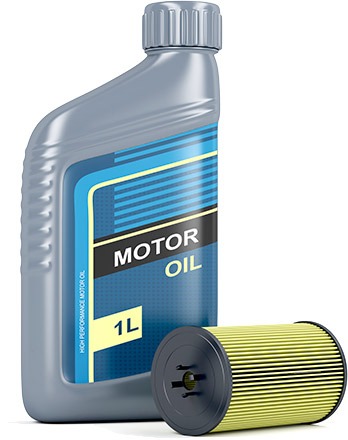Motor Oil, Car Battery Fluid, Coolants
and More Auto Fluids in Hilo, HI
Keeping auto fluids at their proper levels ensures your vehicle will be in good working order. Fluids are essential to the operation of your car, including the engine, brake system, and transmission. Although many car repairs require a professional mechanic, maintaining the levels of car fluids such as motor oil, transmission fluid, and car battery fluid is easy. By taking the time to periodically check these fluids, your car will operate more smoothly and safely.

Motor Oil
Motor oil is the most important fluid in every car with an internal combustion engine. Oil lubricates your engine, reduces friction, and keeps your engine from overheating. This lubrication also prevents rust, which can destroy your pistons, valves and other components. Without oil, a running engine will seize up in a short time, making the engine virtually unusable. Lastly, motor oil traps dirt and other particles, leaving them behind in the oil filter, which is why you should change your filter periodically.
You should check your oil levels once a month. As far as replacing your oil, you should refer to your owner’s manual for the manufacturer’s recommendations.
Transmission Fluid
Transmission fluid performs many of the same functions as motor oil, like lubrication and cooling. As transmission fluid moves through an automatic transmission, it gets pressurized, which provides the hydraulic power needed to perform the transmission’s basic functions, like shifting gears.
Vehicles with manual transmissions also require lubricant but often use a different kind that has to be serviced from underneath the car.
You should check your transmission fluid once a month. How often you should replace it varies from car to car and depends on transmission type. However, it’s typically between every 50,000-100,000 miles.
Brake Fluid
Brake fluid is the most important car fluid in terms of passenger safety. A car’s brake line system is a fully-sealed network that uses hydraulic pressure to control the car’s ability to stop. When a driver presses down on the brake pedal, the brake fluid compresses, transferring the hydraulic force to the pads and shoes that cause the friction necessary to stop the vehicle. If brake fluid leaks or if too much air gets into the brake line, this compromises your car’s ability to stop.
Every time you change your oil, you should also check your brake fluid. Usually, this fluid should be replaced every two years. However, your brake fluid should be a golden color. If it’s brown, it’s time to replace it.
Coolant
Coolant is most commonly a 50/50 combination of water and specialized radiator coolant. Adding coolant to the water in your radiator lowers the freezing temperature of the water, which helps prevent freezing in cold weather. Coolant also protects that same water from boiling. Without proper coolant levels, your car will quickly overheat and be inoperable.
We recommend checking your coolant at least twice a year and replacing it every two to three years.
Power Steering Fluid
Power steering fluid provides lubrication for the steering gear and makes it easier to steer your car. When you turn the steering wheel, a small opening allows pressurized power steering fluid to move in and help you direct the front wheels.
Power steering fluid should be checked once a month. With today’s vehicles, you can just keep the power steering fluid levels topped off, and you may not need to flush and replace it. Nevertheless, double check your owner’s manual for your manufacturer’s recommendations.
Car Battery Fluid
Vehicles with maintenance-free batteries don’t require checking the car battery fluid. However, other car batteries must have their individual cells refilled from time to time. You should check your car or truck battery fluid level at least once a month, and even more often during hot months or during periods of extended use. Always fill your battery with distilled water because regular drinking water contains chemicals that are harmful, which can shorten your battery’s life.
Check Your Auto Fluids Regularly
Maintaining your vehicle includes checking its fluid levels regularly and changing them as necessary. It’s important to remember that auto fluids do not last forever. You must replace them at various intervals in your vehicle’s life cycle because each fluid ensures that your vehicle is operating at its optimal performance.














































